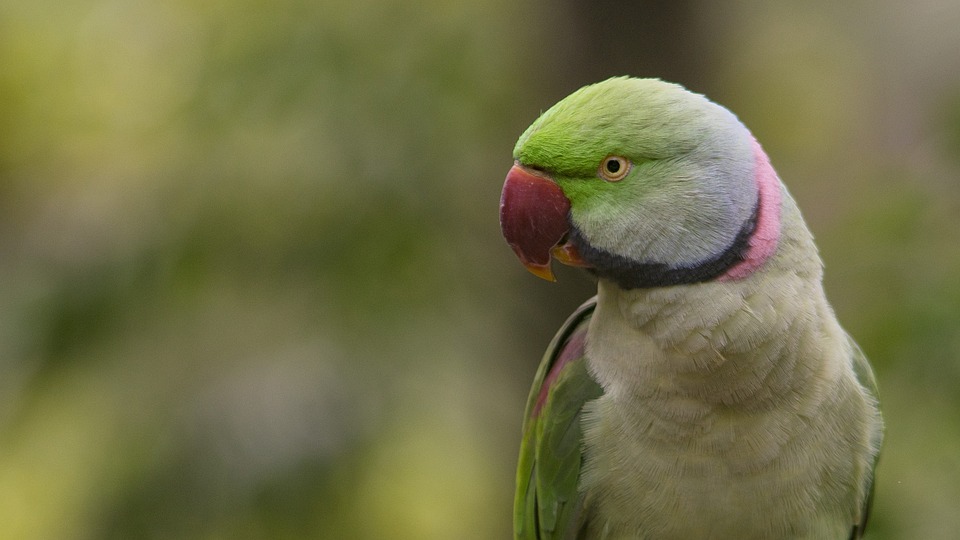Parrots are highly intelligent and social creatures, but like any living being, they can sometimes exhibit aggressive behaviors. Aggression in parrots can be directed towards their owners, other household pets, or even towards themselves. Understanding the reasons behind these aggressive behaviors and implementing appropriate strategies to discourage them is crucial for maintaining a harmonious and safe environment for both parrots and their human companions.
Causes of Aggression in Parrots
1. Territorial Aggression: Parrots can become territorial over their cages, perches, or favorite toys. They may exhibit aggressive behaviors such as biting, lunging, or making threatening sounds when someone approaches their territory.
2. Fear and Stress: Parrots are sensitive creatures, and when they feel threatened or stressed, they may respond with aggression. This aggression can be directed towards people, animals, or objects.
3. Hormonal Changes: During breeding seasons, parrots may experience hormonal surges that can lead to aggressive behaviors, particularly in males. This aggression is often aimed at protecting their mates or defending their nesting areas.
4. Lack of Socialization: Parrots are social animals that require regular interaction and mental stimulation. Without proper socialization, they may develop aggressive behaviors as a result of frustration, boredom, or loneliness.
5. Health Issues: Undiagnosed or untreated health conditions can cause discomfort or pain, leading to aggressive behaviors in parrots. It is essential to rule out any underlying medical issues when dealing with aggression.
Tips to Discourage Aggressive Behaviors
1. Positive Reinforcement: Rewarding good behavior with treats, praise, or toys can positively reinforce desired actions in parrots. This technique encourages them to associate positive experiences with appropriate behaviors, discouraging aggression.
2. Identify Triggers: Observe and identify the specific triggers that provoke aggression in your parrot. Once identified, work on desensitizing your parrot to those triggers through gradual exposure and positive reinforcement.
3. Provide Enrichment: Parrots require mental and physical stimulation to keep them engaged and prevent boredom. Provide a variety of toys, puzzles, and activities that encourage natural behaviors and alleviate the potential for frustration or aggression.
4. Establish Boundaries: Teach your parrot basic commands like “step up” and “step down” to establish boundaries and reinforce your role as the leader. Consistency and gentle reminders will help your parrot understand what is expected of them.
5. Consult an Avian Behaviorist: If your parrot’s aggression persists despite your efforts, it may be beneficial to consult an avian behaviorist. These professionals specialize in understanding and addressing parrot behavior issues, providing tailored solutions for your specific situation.
FAQs about Discouraging Aggressive Behaviors in Parrots
Q1: Can punishment be effective in stopping parrot aggression?
Punishment is generally not recommended as a strategy to discourage parrot aggression. It can create fear and further escalate aggression. Instead, focusing on positive reinforcement and redirection of behavior is more effective.
Q2: Will neutering or spaying my parrot help reduce aggression?
Neutering or spaying can help reduce hormonal aggression in parrots. However, it is essential to consult with an avian veterinarian to determine if this procedure is appropriate for your parrot and to understand the potential risks and benefits involved.
Q3: How long does it take to see improvements in aggressive parrot behavior?
The timeline for seeing improvements in aggressive parrot behavior varies depending on the underlying causes and the consistency of training and behavior modification techniques. Patience and consistency are key, and it may take weeks or even months to see significant changes.
Q4: Are there any natural remedies that can help calm an aggressive parrot?
Certain natural remedies, such as herbal supplements or aromatherapy, may help calm an aggressive parrot. However, it is crucial to consult with an avian veterinarian before using any natural remedies to ensure they are safe and appropriate for your parrot’s specific needs.
In conclusion, understanding the underlying causes of aggression in parrots and implementing appropriate techniques can help discourage aggressive behaviors and promote a harmonious relationship between parrots and their human companions. Remember to prioritize positive reinforcement, provide mental and physical enrichment, and seek professional help when necessary to ensure the well-being of your feathery friend.









